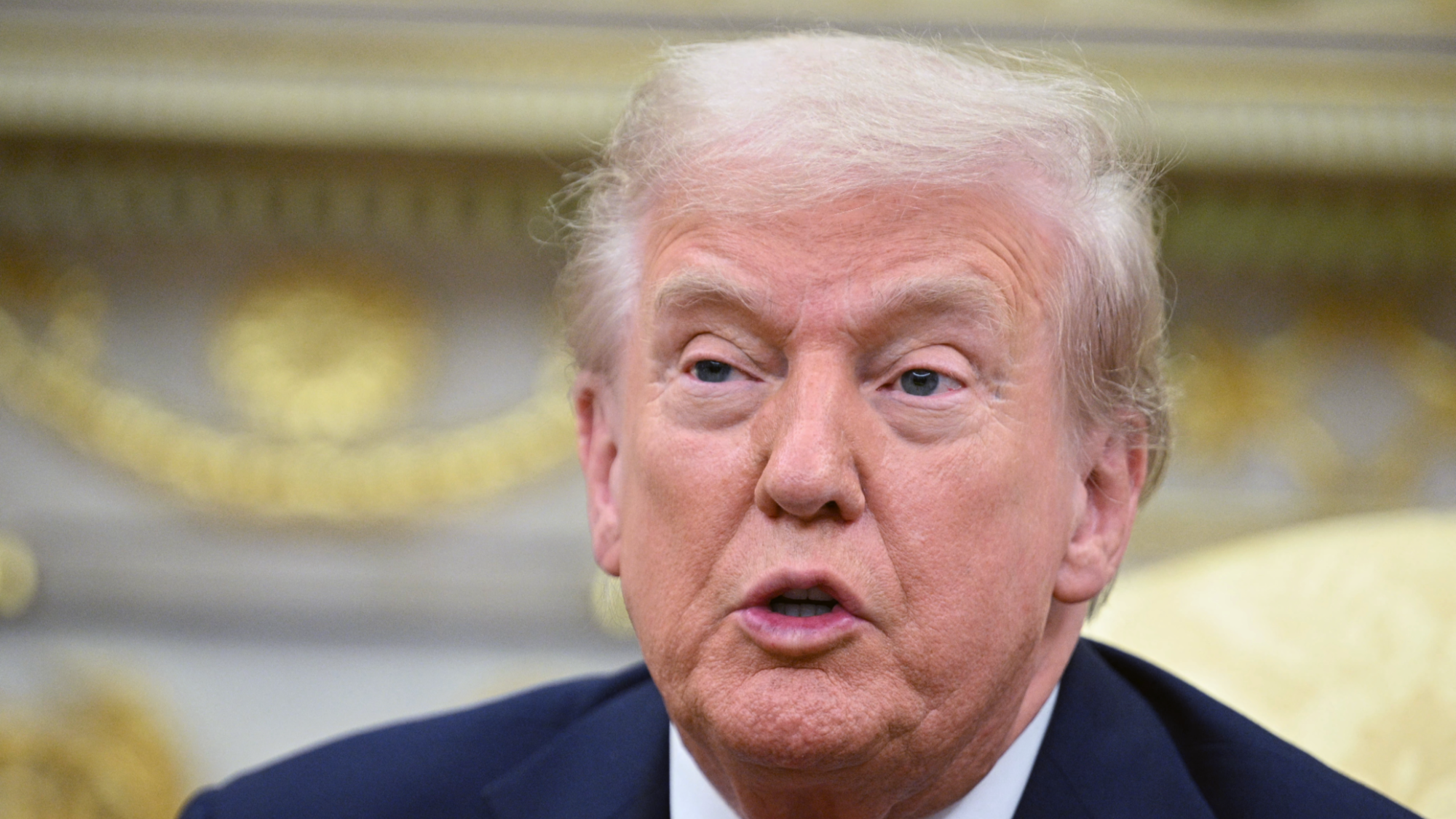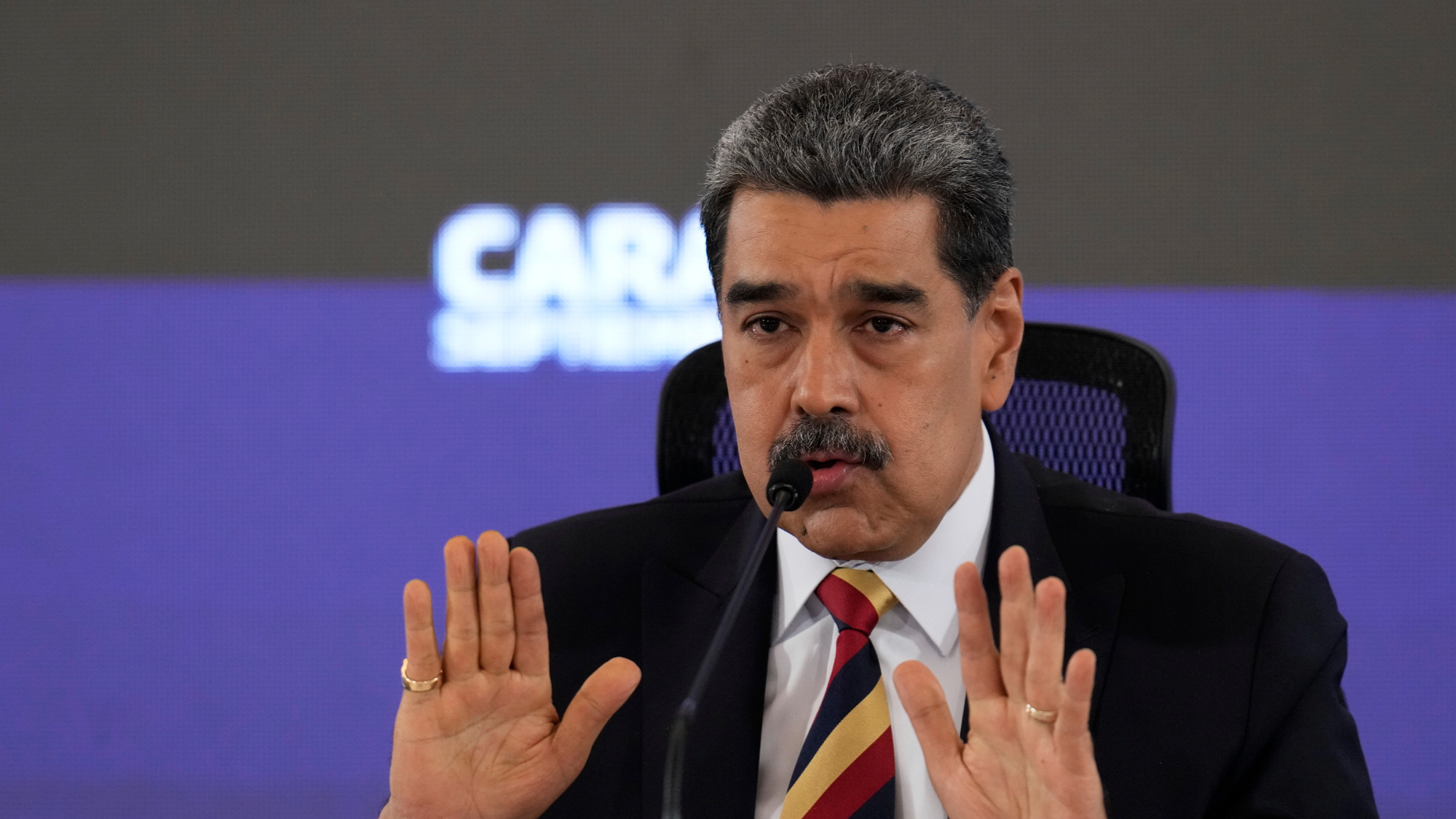
WASHINGTON - US President Donald Trump said Wednesday he has authorized the US Central Intelligence Agency (CIA) to conduct covert operations in Venezuela, a move that was decried by Venezuelan President Nicolas Maduro.
Speaking to reporters at the White House, Trump accused Caracas of releasing prisoners and mental patients to illegally cross into the United States and of smuggling large volumes of narcotics.
"They have emptied their prisons into the US of America" and "allowed thousands and thousands of prisoners" and "people from mental institutions, insane asylums," Trump accused, without offering evidence.
Asked whether he had authorized the CIA to kill Maduro, Trump refused to answer, saying, "I think Venezuela is feeling heat."

Trump added that his administration is considering strikes against Venezuela on land. "We are certainly looking at land now because we've got the sea very well under control," he said.
Shortly after Trump's comments, Maduro decried what he called "coups d'etat orchestrated by the CIA," according to media reports.
According to the New York Times (NYT), the new authorization allows the CIA to conduct lethal missions in Venezuela and the Caribbean, as well as to coordinate with broader US military operations in the region.
Officials with the Trump administration "have been clear, privately, that the end goal is to drive Mr. Maduro from power," reported the NYT, adding that roughly 10,000 US troops, eight warships, and one submarine are currently deployed in the Caribbean, mostly based in Puerto Rico.
ALSO READ: Trump says US strike on vessel near Venezuelan coast killed six
Since September, the White House has announced five US strikes that destroyed five alleged drug-trafficking boats in the international waters near Venezuela, killing 27 people aboard in total.
Earlier this month, the White House informed Congress that the US is engaged in a "non-international armed conflict" with drug cartels designated as terrorist groups, without naming them.
While some cocaine leaves South America through Venezuela, the country is not a main source of US-bound drugs, according to a 2020 report from the US Drug Enforcement Administration. Maduro has repeatedly condemned Washington's actions as an attempt at regime change and military expansion in Latin America.
Historically, the CIA has been notoriously involved in numerous coups and covert operations across Latin America.
US militarizing Caribbean
Venezuelan Foreign Minister Yvan Gil on Wednesday denounced the US' "militarization" of the Caribbean Sea, which has claimed the lives of at least 27 civilians.
"We emphasize that there is no justification whatsoever for the militarization of our coasts," Gil said while addressing the midterm ministerial meeting of the Non-Aligned Movement held in Uganda.
Gil condemned recent US missile strikes on ships in the region as "extrajudicial executions," the Venezuelan Foreign Ministry said in a statement.
READ MORE: Venezuelan defense chief: US military deployment in Caribbean mirrors colonial-era tactics
"These are murders committed with total premeditated malice, in international waters, thousands of kilometers from the US coast, in actions that violate every norm of international law," Gil was quoted as saying. "At least 27 civilians" have been killed to date.
He added that behind the US stance against Venezuela lies "an old ambition: to carry out its already failed regime change plan to seize control of the country's resources."
"It is necessary to put an end to the chains they intend to impose on our peoples, with criminal unilateral coercive measures and blockades to bring our countries to their knees," Gil stressed.
On Telegram, Gil also noted that during the Uganda meeting, he witnessed "deep solidarity" from key allied countries "in the face of the military threat in the Caribbean, which poses a serious risk to peace."


